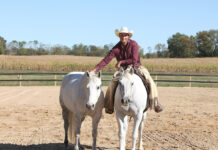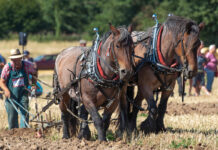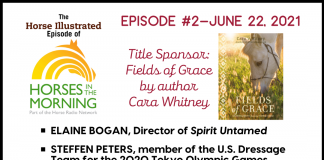“When you are suddenly faced with the realization of how short and precious life is, you decide what is most important,” Amanda Ableidinger shares. “I spent every waking hour thinking about what I would do with my life if I could somehow get it back.”
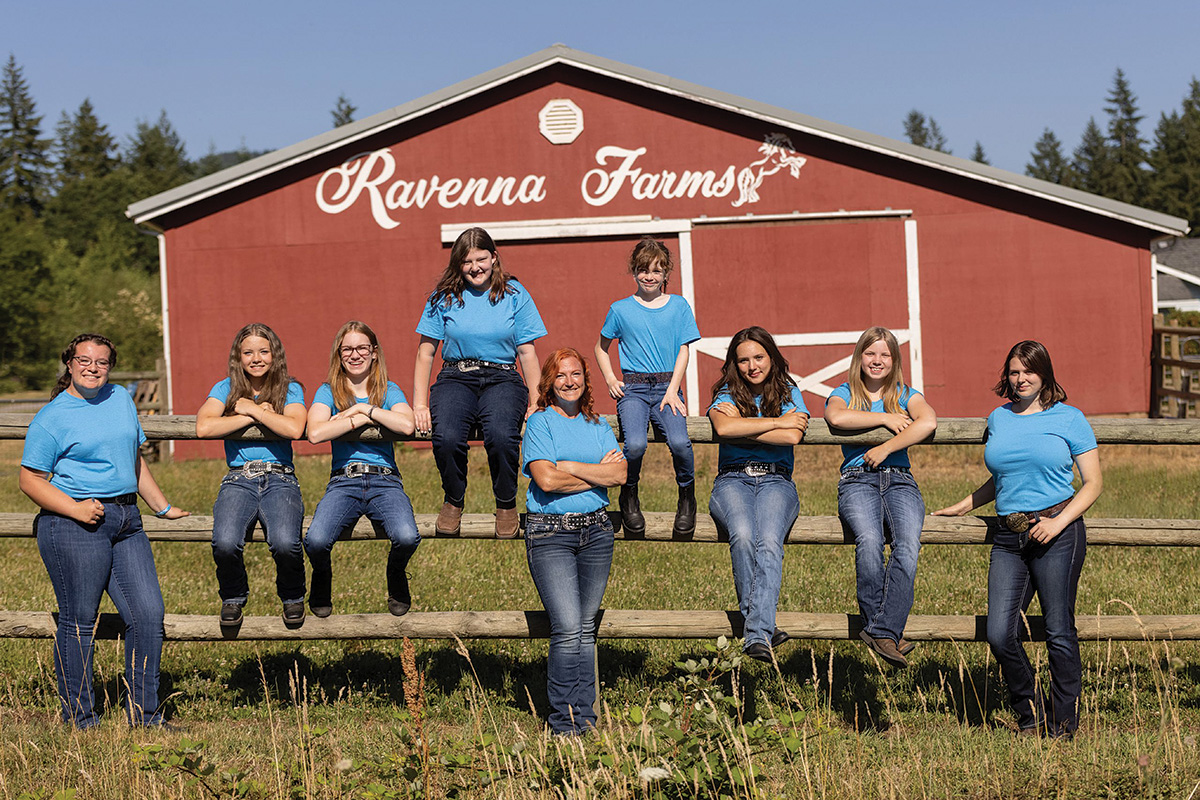
“The pain in my joints and muscles was so excruciating that I lost the ability to move my body,” she says. “I couldn’t walk, feed myself, or even do something as simple as tie my shoes.”
Eventually, they found a treatment that worked for her. Two years later, she was able to move with less pain. As she realized she may be able to get some of her life back, one thought drove her: to get back in the saddle.
Finding New Purpose
Ableidinger, who was forced to retire from owning and operating a hair salon due to Lyme, looked for a new purpose for her life. And then she thought of 4-H.
“I grew up with 4-H,” she says. “While I was very active in both the 4-H Dog and Poultry Projects during my high school years, the Horse Project was too expensive. We had the horses, but we didn’t have a horse trailer, the money for lessons, or the expensive tack that was needed to participate in shows and events.”
Fueled by a lifelong love of horses, she and her husband decided this could be it—her new purpose. In 2017, a club leader in her area of Clark County in Washington state was retiring, and someone needed to take over the 4-H Horse Project.
“I saw it as my chance to give youth the opportunity that I never had,” Ableidinger says. With that, the Ravenna Riders were born.
Covering All Needs
But this isn’t just any 4-H club. The Ableidingers want to make it more affordable for kids to have an amazing experience of working with horses. They do this by providing most of the horses, tack and equipment out of their own pocket. 4-Hers pay a small monthly fee to help with feed if they use one of the Ableidingers’ horses.
“There are a few horses ridden by club members that are leased and boarded at neighboring barns,” she says. “Some of those riders have tack that they borrow from the horse’s owners, buy themselves at tack sales, or are supplied through generous donations from those in our horse community.”
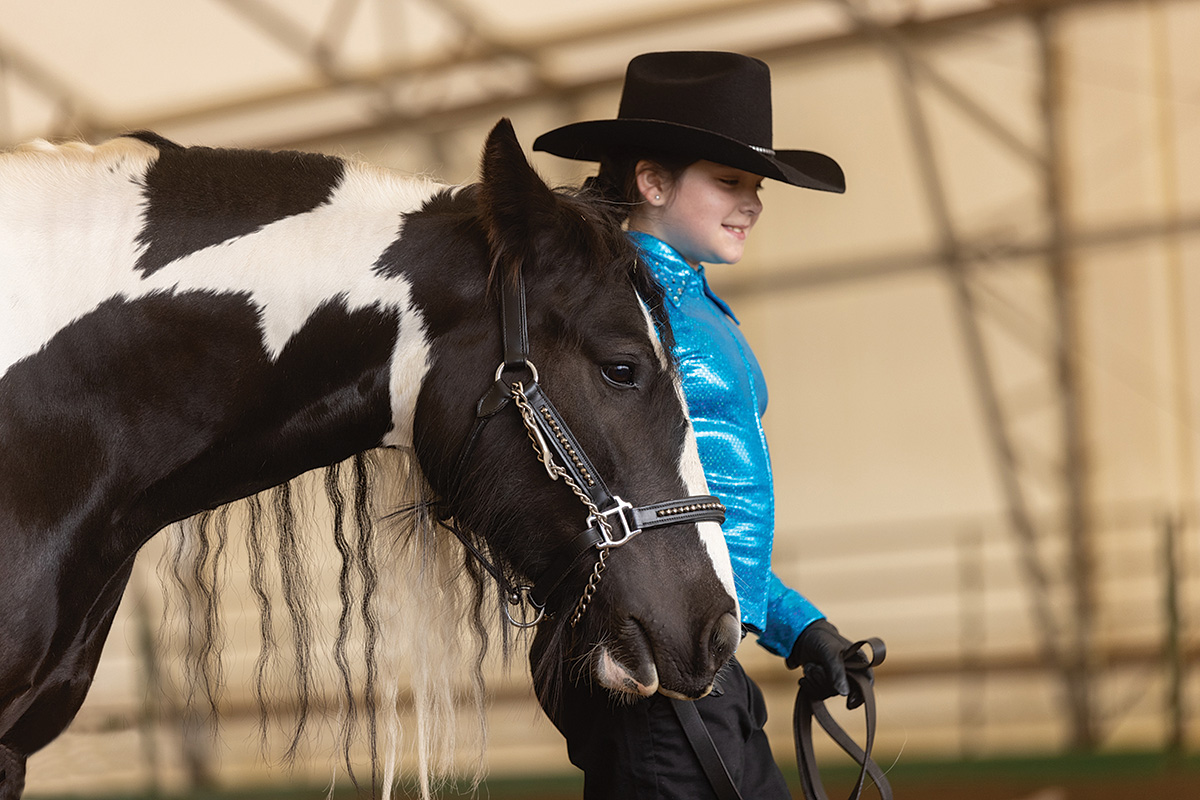
Ableidinger also gives weekly lessons to her 4-Hers—for free. She even picks up and drops off some of her club members so they can come to meetings and lessons.
“It’s pretty much my full-time job even though I’m a volunteer,” she says. “But I love what I do, and it’s reward enough to see our club members learn and grow in their horsemanship and witness how much they enjoy being a part of the club.”
Breed of Choice
Most of the horses in the barn are Gypsy Vanners; the Ableidingers bought their first two Gypsy yearlings in 2015 and never looked back.
“They have the best temperaments,” Ableidinger says. “They are like big puppy dogs that want to be with you, and they will work very hard for their rider or handler.”

While it’s common to see children with Gypsy horses in the United Kingdom, Gypsy breeds fetch a high dollar in the United States.
“The cost of one of these horses makes them unaffordable for youth,” Ableidinger says. “There are very few youth riders in the breed in our country. We wanted to change that. We felt passionate about putting these amazing horses into a program for youth to enjoy and work with.”
Back in the Saddle
Since their yearlings were too young, Kimberlee Tilton of LCR Gypsies gave them a Gypsy mare, Mia, as a care-lease to use as the first project horse. The following year, the
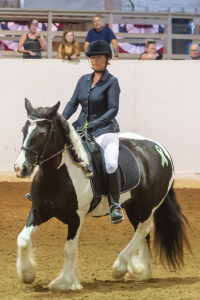
Ableidingers bought her. They now have six Gypsies in the program, along with a few draft crosses and several Quarter Horses.
Ableidinger also had a personal dream to ride again. In 2019, she and Mia competed at the Oregon State Fair in a freestyle class with her 4-Hers cheering her on.
Decked out in lime green (the Lyme awareness color), they competed to Avril Lavigne’s “Head Above Water,” a song Lavigne wrote about the devastating disease. It was a completion of a dream for Ableidinger, and the smile on her face as she performed said it all. She was back in the saddle and sharing her love with youth.
Her life has purpose again, making the hard days that she still has due to Lyme disease easier to handle. As for the 4-H Horse Project youth, she and Scott are providing priceless experiences they will never forget.
This article about the 4-H Horse Project appeared in the October 2021 issue of Horse Illustrated magazine. Click here to subscribe!


